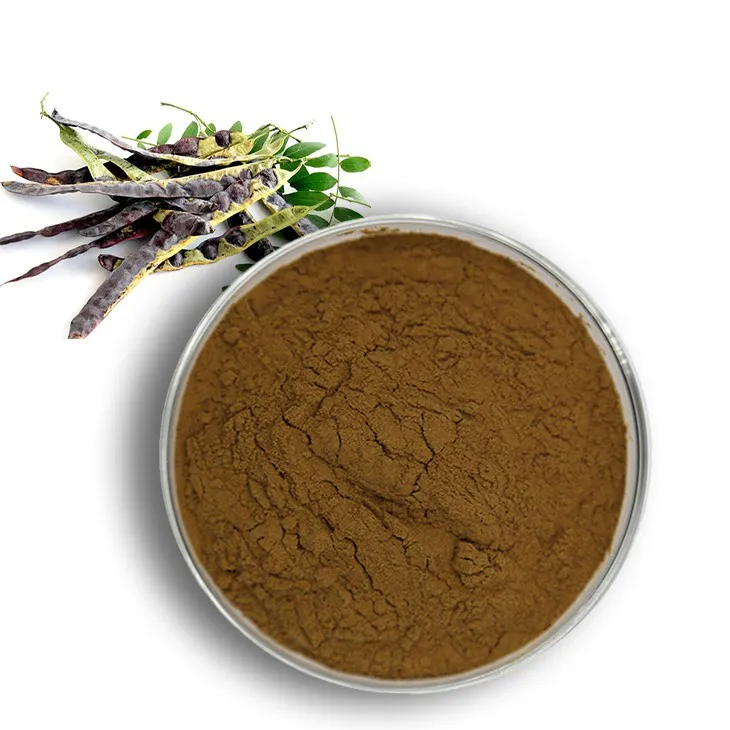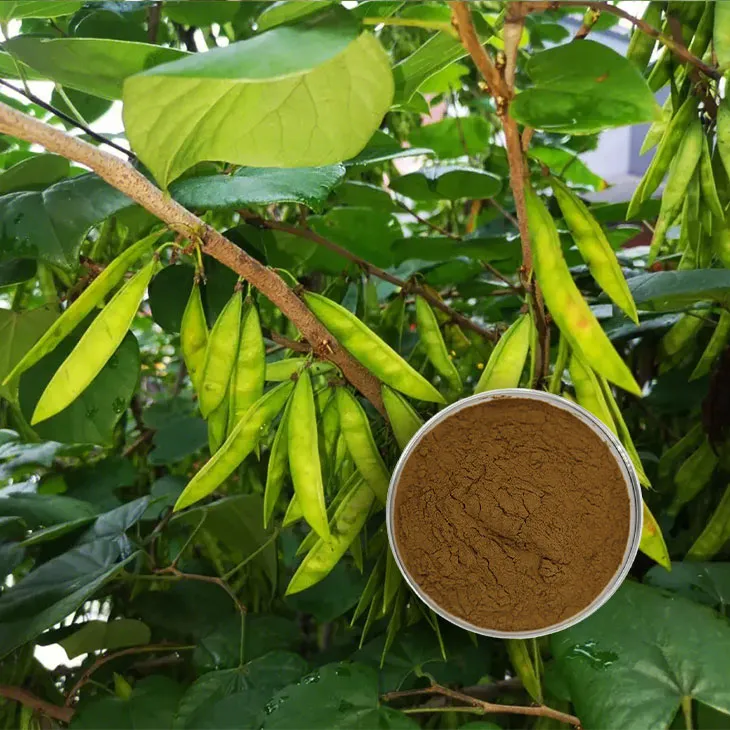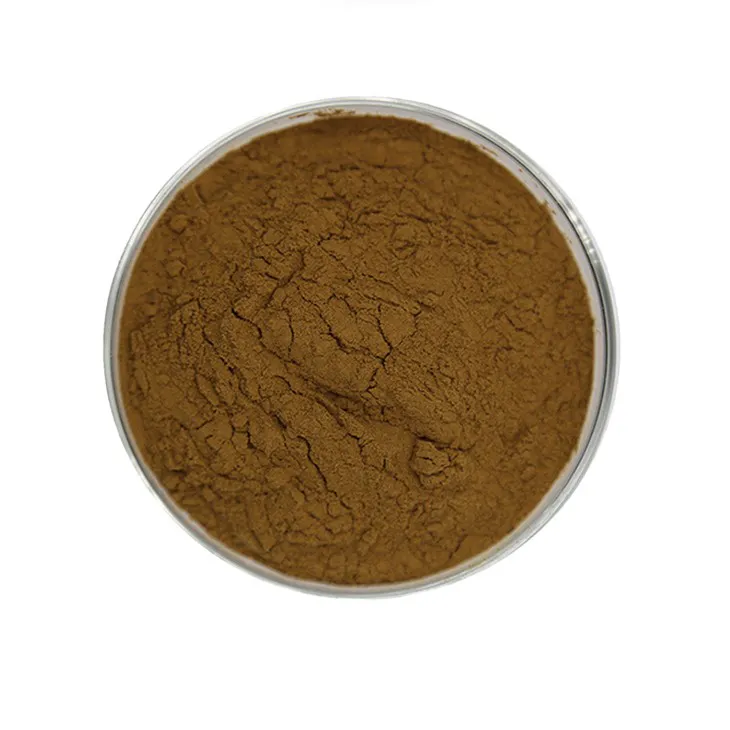- 0086-571-85302990
- sales@greenskybio.com
Saponin Extract: Benefits, Uses and How It Can Improve Your Home
2024-11-12

Introduction
Saponin Extracts have been gaining increasing attention in recent years due to their versatile nature and numerous potential benefits. These natural compounds are found in a variety of plants and have been used for centuries in different cultures for various purposes. In the context of the home, Saponin Extracts offer a wide range of applications that can enhance our living environment, from improving health to providing more natural and sustainable solutions for household tasks.

What are Saponin Extracts?
Saponin extracts are a group of glycosides that are characterized by their foaming properties when dissolved in water. They are found in many plant species such as soapwort (Saponaria officinalis), quinoa, and ginseng. Chemically, saponins consist of a sugar moiety attached to a triterpene or steroid aglycone. This unique structure gives them their distinct properties.

Benefits of Saponin Extracts
1. Pest Control
One of the significant benefits of saponin extracts in the home is their role in pest control.
- Saponins can act as a natural insecticide. They work by disrupting the cell membranes of insects. For example, in the case of aphids, which are common pests in gardens and indoor plants, saponin extracts can be sprayed on the plants. The saponins penetrate the outer layer of the aphids and cause damage to their cells, ultimately leading to their death.
- They are also effective against ants. Ants are attracted to food sources in the home, and sometimes they can become a nuisance. Saponin - based products can be used to create a barrier that ants are reluctant to cross. This is because the saponins interfere with their chemical communication and navigation systems.
2. Skin - care at Home
Saponin extracts can also be beneficial for skin - care within the home environment.
- Many plants containing saponins have been used in traditional medicine for skin conditions. For instance, soapwort has been used for centuries to cleanse the skin gently. The saponins in soapwort create a natural lather that can remove dirt and excess oil from the skin without causing excessive dryness. This makes it suitable for people with sensitive skin.
- Saponin - rich plants can also be used to make homemade face masks. These masks can help in exfoliating the skin, removing dead skin cells, and leaving the skin feeling fresh and rejuvenated. For example, a face mask made from ground quinoa seeds (which contain saponins) and some natural oils can provide a gentle exfoliating effect while also nourishing the skin.
3. Improving Air Quality
Saponin extracts can contribute to better indoor air quality.
- Some plants that contain saponins are known for their air - purifying abilities. For example, certain indoor plants release saponins into the air through a process called transpiration. These saponins can interact with pollutants in the air such as particulate matter and some volatile organic compounds (VOCs). They can either adsorb these pollutants onto their surface or chemically react with them to convert them into less harmful substances.
- In addition, saponin - based products can be used in air - freshening sprays. These sprays can help to neutralize odors in the home. Instead of using synthetic air fresheners that may contain harmful chemicals, saponin - based alternatives can provide a natural and safer way to keep the air smelling fresh.

Uses of Saponin Extracts in Household Items
1. Cleaning Products
Saponin extracts can be a great addition to cleaning products in the home.
- In dishwashing detergents, saponins can act as a natural surfactant. A surfactant reduces the surface tension of water, allowing it to spread more easily and penetrate dirt and grease on dishes. This means that dishes can be cleaned more effectively with less scrubbing. Saponin - based dishwashing detergents are also more environmentally friendly as they are biodegradable compared to some synthetic surfactants.
- For general household cleaning, saponin extracts can be used in floor cleaners. They can help to remove dirt and stains from floors without leaving behind a harsh chemical residue. This is especially important for homes with children and pets where the safety of the cleaning products used is a major concern.
2. Gardening
In the garden, saponin extracts have several uses.
- As mentioned earlier for pest control, saponin - based sprays can be used to protect plants from various insects. This reduces the need for synthetic pesticides, which can have negative impacts on the environment and beneficial insects such as bees.
- Saponins can also be used as a natural plant growth stimulant. When applied to the soil, they can help to improve the soil structure. They can increase the porosity of the soil, allowing better water infiltration and root penetration. This, in turn, can lead to healthier plant growth.

How to Incorporate Saponin Extracts into Your Home
1. Making Homemade Saponin - based Products
- For making a saponin - based skin - care product, such as a face wash, you can start by gathering soapwort plants. Wash the plants thoroughly and then simmer them in water for about 20 - 30 minutes. Strain the liquid, and the resulting solution can be used as a natural face wash. You can add a few drops of essential oils like lavender for a pleasant scent.
- To make a saponin - based cleaning product for floors, you can use ground quinoa seeds. Soak the seeds in water overnight. In the morning, blend the soaked seeds with some water until you get a smooth paste. Strain the paste, and the liquid can be used as a floor cleaner. You can add a small amount of vinegar for extra cleaning power.
2. Buying Saponin - rich Products
- There are now many commercially available products that contain saponin extracts. When buying skin - care products, look for those that list natural plant extracts such as soapwort or quinoa as ingredients. These products are likely to contain saponins and can provide the associated skin - care benefits.
- For household cleaning products, some eco - friendly brands are starting to use saponin extracts in their formulations. Check the labels for products that are labeled as "natural" or "plant - based" and specifically mention saponins or saponin - rich plants.
Precautions and Considerations
While saponin extracts offer many benefits, there are also some precautions to keep in mind.
- Some people may be allergic to saponin - containing plants. Before using a saponin - based product on the skin or in the home, it is advisable to do a patch test. Apply a small amount of the product to a small area of skin and wait for 24 hours to see if there is any allergic reaction.
- When using saponin extracts for pest control, it is important to use them in the correct concentration. Using too high a concentration may harm plants or have unintended effects on non - target organisms.
- Ingesting large amounts of saponins can be toxic. Therefore, products containing saponins should be kept out of reach of children and pets.
Conclusion
Saponin extracts are a valuable natural resource with a wide range of benefits and uses in the home. From pest control to skin - care and improving air quality, they offer more natural and sustainable alternatives to many common household products. By understanding how to incorporate saponin extracts into our homes, whether through making homemade products or choosing the right commercial products, we can enjoy a healthier, more environmentally - friendly living environment. However, it is important to be aware of the precautions associated with saponin use to ensure the safety of our families and the effectiveness of these products.
FAQ:
What are the benefits of saponin extracts for the home environment?
Saponin extracts can offer several benefits for the home environment. They can be used in pest control, which helps keep unwanted insects and pests away. Also, they can contribute to improving indoor air quality, creating a healthier living space.
How are saponin extracts used in household items?
Saponin extracts are used in various household items. In skin - care products at home, they may have properties that are beneficial for the skin. They can also be incorporated into cleaning products due to their natural properties that can help with dirt removal and disinfection.
Can saponin extracts really improve air quality indoors?
Yes, saponin extracts can improve indoor air quality. They may have the ability to absorb or neutralize certain pollutants or odors in the air, thus making the indoor air cleaner and more pleasant.
Are saponin extracts safe to use in home - made skin - care products?
Generally, saponin extracts can be safe to use in home - made skin - care products when used properly. However, it's important to note that some people may have allergies or sensitivities. It's advisable to do a patch test first. Also, make sure to use high - quality, pure saponin extracts.
How effective are saponin extracts in pest control?
Saponin extracts can be quite effective in pest control. They can act as a natural deterrent for many pests. For example, they may disrupt the pests' feeding or breeding patterns, making the home environment less hospitable for them.
Related literature
- The Role of Saponins in Natural Pest Management"
- "Saponin Extracts and Their Impact on Indoor Air Quality"
- "Saponins in Home - made Skin - care: Benefits and Precautions"
- ▶ Hesperidin
- ▶ citrus bioflavonoids
- ▶ plant extract
- ▶ lycopene
- ▶ Diosmin
- ▶ Grape seed extract
- ▶ Sea buckthorn Juice Powder
- ▶ Beetroot powder
- ▶ Hops Extract
- ▶ Artichoke Extract
- ▶ Reishi mushroom extract
- ▶ Astaxanthin
- ▶ Green Tea Extract
- ▶ Curcumin Extract
- ▶ Horse Chestnut Extract
- ▶ Other Problems
- ▶ Boswellia Serrata Extract
- ▶ Resveratrol Extract
- ▶ Marigold Extract
- ▶ Grape Leaf Extract
- ▶ blog3
- ▶ blog4
- ▶ blog5
-
Organic Tongkat Ali extract powder factory.
2024-11-12
-
How to make powder with ashwagandha extract.
2024-11-12
-
Rosehip extract manufacturers from China.
2024-11-12
-
The best cat's claw extract in nature.
2024-11-12
-
Chinese Dandelion Leaf Extract Suppliers.
2024-11-12
-
Epimedium extract powder
2024-11-12
-
Mangosteen extract powder
2024-11-12
-
Reishi mushroom extract
2024-11-12
-
Citrus Aurantii Extract
2024-11-12
-
Quercetin
2024-11-12
-
Black Garlic Extract
2024-11-12
-
American Ginseng Root Extract
2024-11-12
-
Golden Seal Extract
2024-11-12
-
Shikone Extract
2024-11-12
-
Alfalfa Meal
2024-11-12





















